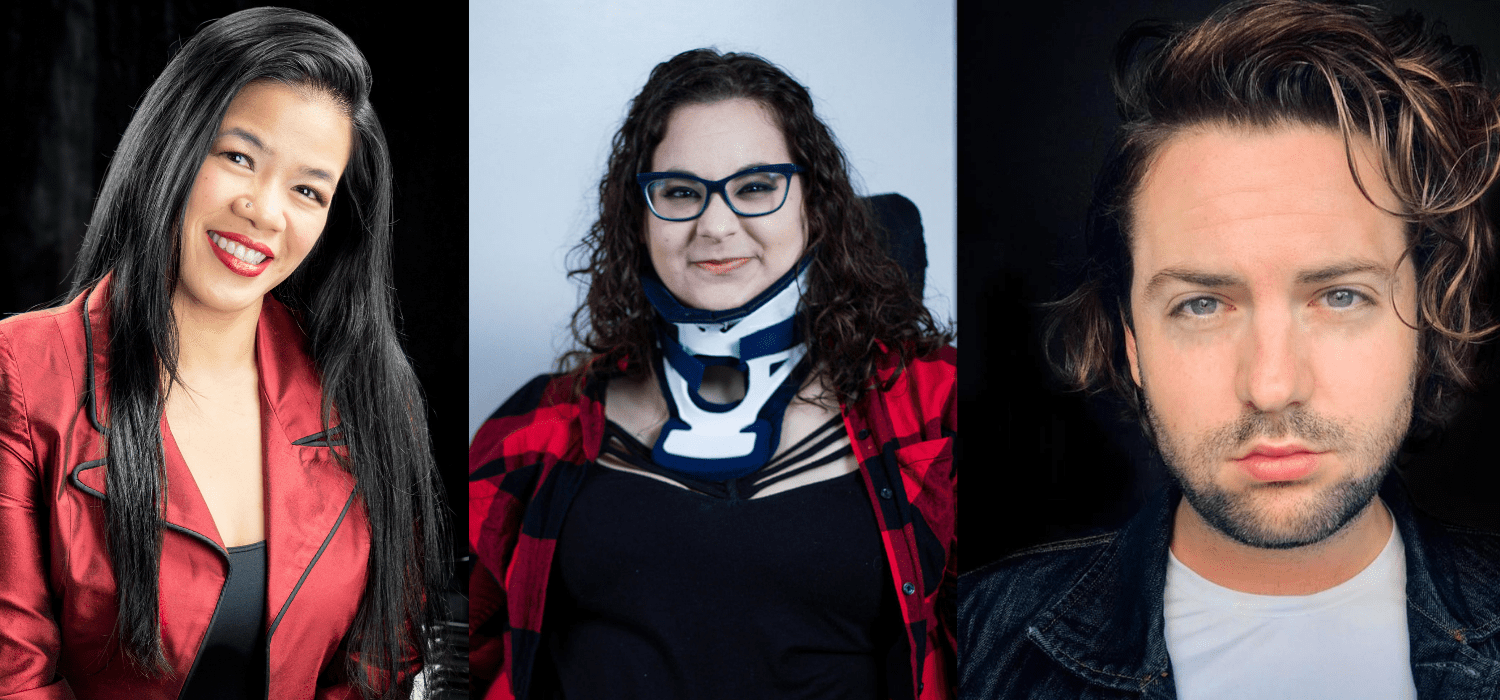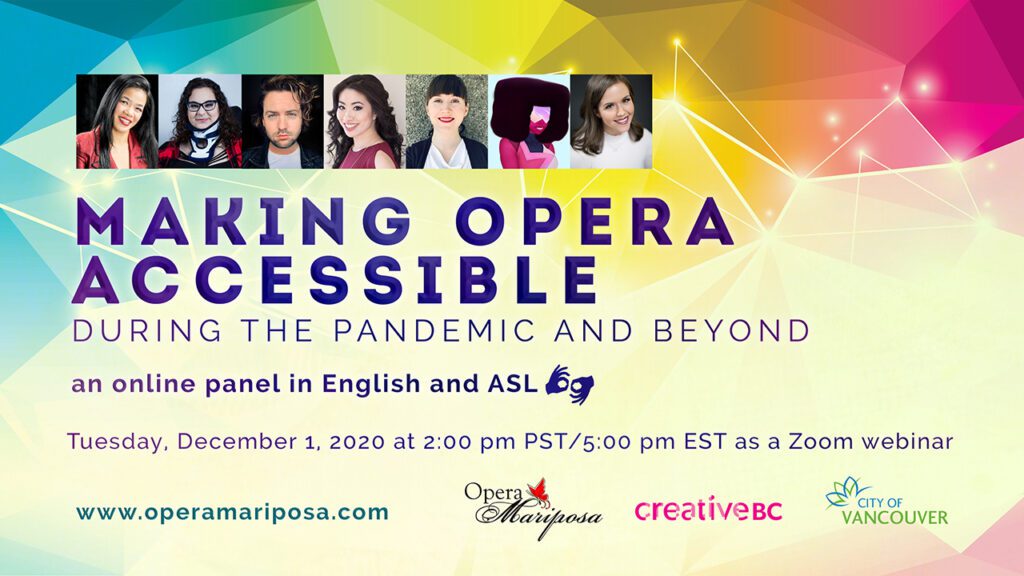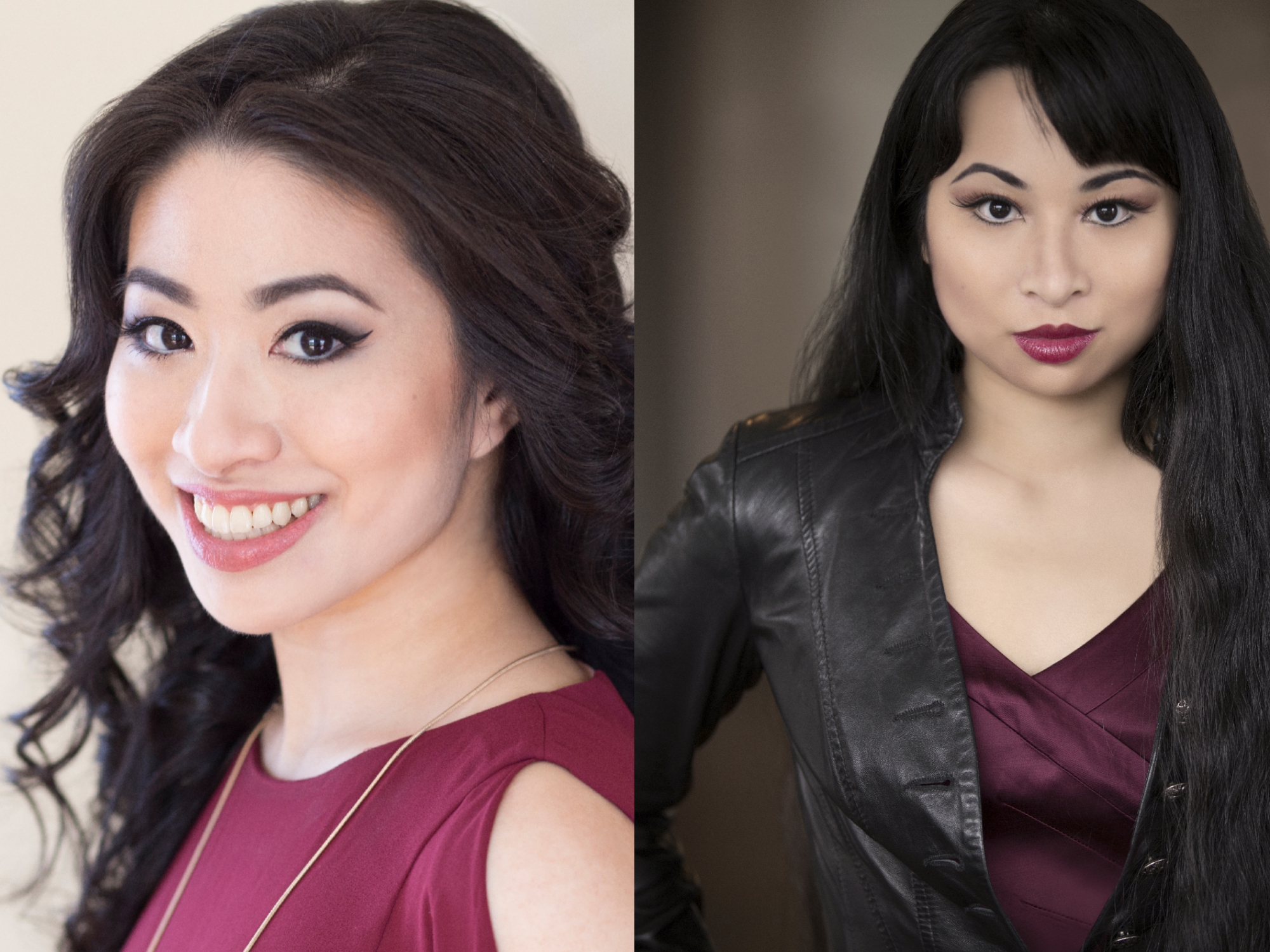On Dec. 1st, Opera Mariposa is creating a platform for Deaf and disabled perspectives in opera via an online panel discussion on accessibility, inclusion and pursuing live music safely during COVID-19.
With Making Opera Accessible: during the pandemic and beyond, the Vancouver-based company aims to continue tackling topics like ableism and audism in opera. Panelists will also discuss how theatres can pave the way for safe re-openings that welcome everyone.
“Disabled opera artists often seem to be left out of conversations around reopening. A number of these discussions appear to be built on the premise that those at higher risk for COVID can ‘just stay home’, while the performing arts proceed without us,” Opera Mariposa co-founder Stephanie Ko said.
Ko is a disabled arts administrator, producer, designer and national award-winning writer based in Vancouver, BC. She serves as the General Manager of Opera Mariposa, Canada’s first entirely disability-led and -run opera company. Ko explained one of the biggest misconceptions she has encountered in the opera world is that disability needs to be confined to a special, separate category.
“What is rare, in my experience, is to find an environment where artists with disabilities or chronic illnesses feel safe being ‘out,’” Ko said. ”They fear, often rightly, that their commitment or their capabilities will be questioned if they reveal that they’ve achieved their accomplishments while living with a disability or health issues.”
Despite current perception and representation, there are 5.3 million Canadians living with one or more disabilities. In the unforgiving wake of the pandemic, the number of people living with disabilities or chronic illnesses is growing, and includes many artists, arts workers and audiences.
“As more members of the opera world join the disability community, we need to find ways of moving forward that don’t leave people behind,” Ko said. “Folks have suddenly needed to find new ways of doing things, by using technology or adapting their processes–essentially, creating accessibility solutions that the disability community has sought for years.”
Ko said the panel includes singers, directors, musicians, educators, arts admins and company leaders who come from intersectional backgrounds and can approach the discussion from experience in the opera industry as well as film, theatre, disability justice, policy reform and LGBTQ+ advocacy.
“I hope that members of the Deaf, disability, and chronic illness communities will feel represented in the opera world, and know that people are actively working to create spaces that welcome them. I hope that arts professionals will come away with new ideas, tools, and perspectives,” Ko said.
Among the panelists are Deaf artist and opera creator Landon Krentz from Calgary; Disabled writer, performer and comedian Ophira Calof from Toronto; and Vancouver musician and radio host Karen Lee-Morlang, who is also Artistic Director of the Health Arts Society of BC.
Mariposa co-founder Robin Hahn will be moderating the discussion. Hahn is an award-winning lyric soprano, stage director and multi-disciplinary artist who has hailed stages around the world. Her productions often focus on reinterpreting and updating heteronormative stories.
When Hahn came out to the operatic community, she said she received a flood of messages from colleagues–some of whom she hadn’t heard from in years, and who had never openly admitted to struggling with their health before: “Many of them shared that they were afraid of what would happen to their careers if they were open about their disabilities. The fear of losing work after disclosing a diagnosis is real,” Hahn said.
“I offer one example of a misconception that’s doing damage to artists to this day: that having a physical disability immediately bars singers from being able to perform opera. This is simply not true,” Hahn said. “This misconception comes in a million forms, from thinking that a singer with a chronic illness can’t be strong enough to have excellent technique and work ethic (they certainly can), to the idea that users of mobility aids can’t perform because mobility aids aren’t period accurate (they are).”
Making Opera Accessible will be on Zoom, and will be available on Opera Mariposa’s website and social media. The free event has English captions and ASL interpretation; it’s supported by Creative BC and the City of Vancouver.
“Change seems hard, especially in an art form that so values its traditions. But many of the actions needed to make those changes are actually small. They’re many and varied, and required at all levels, but so many of them are also inexpensive, simple to implement, and so, so worth it,”
“Leaving [disabled folks out] out leaves out some of the best artists and the most enthusiastic audience members opera could have,” Hahn said.














